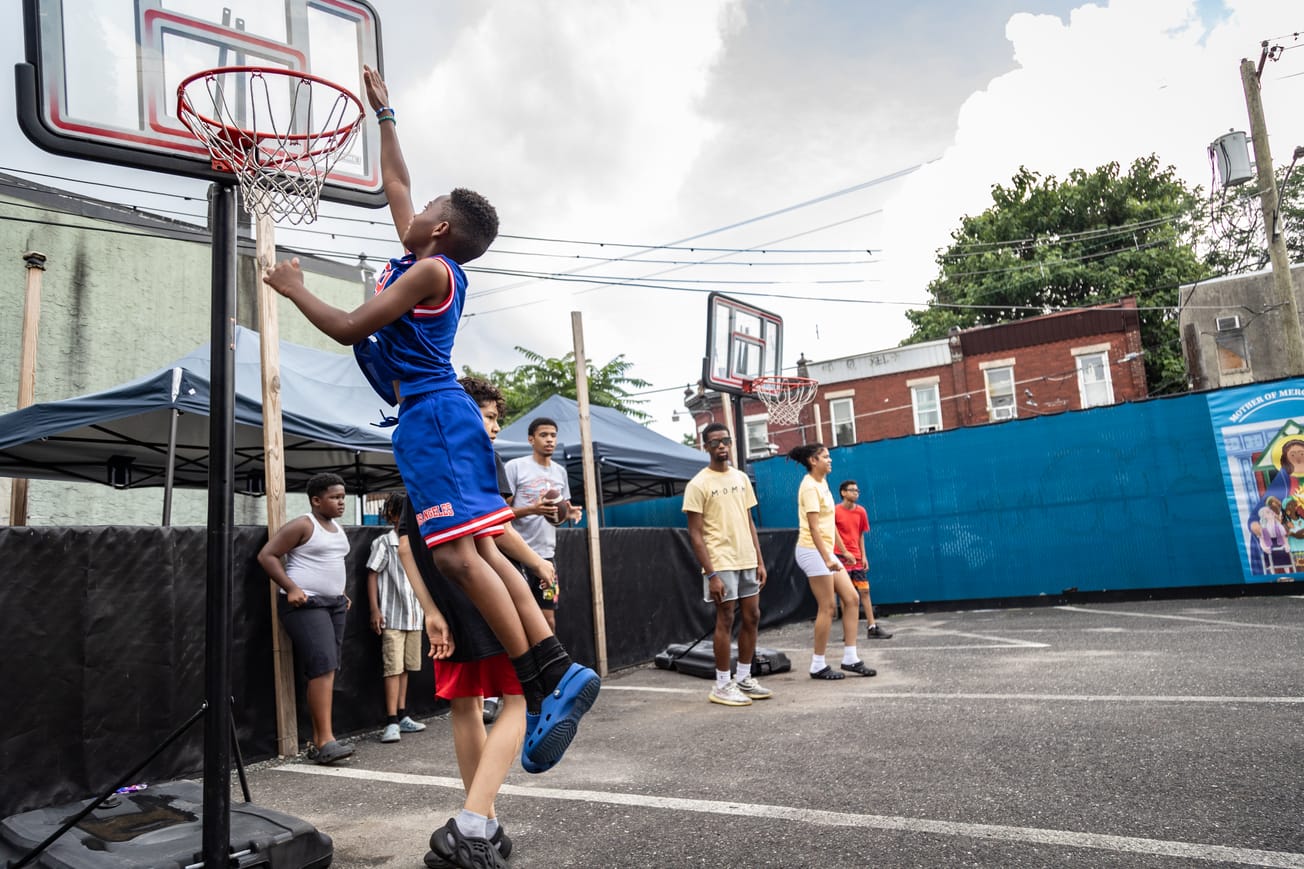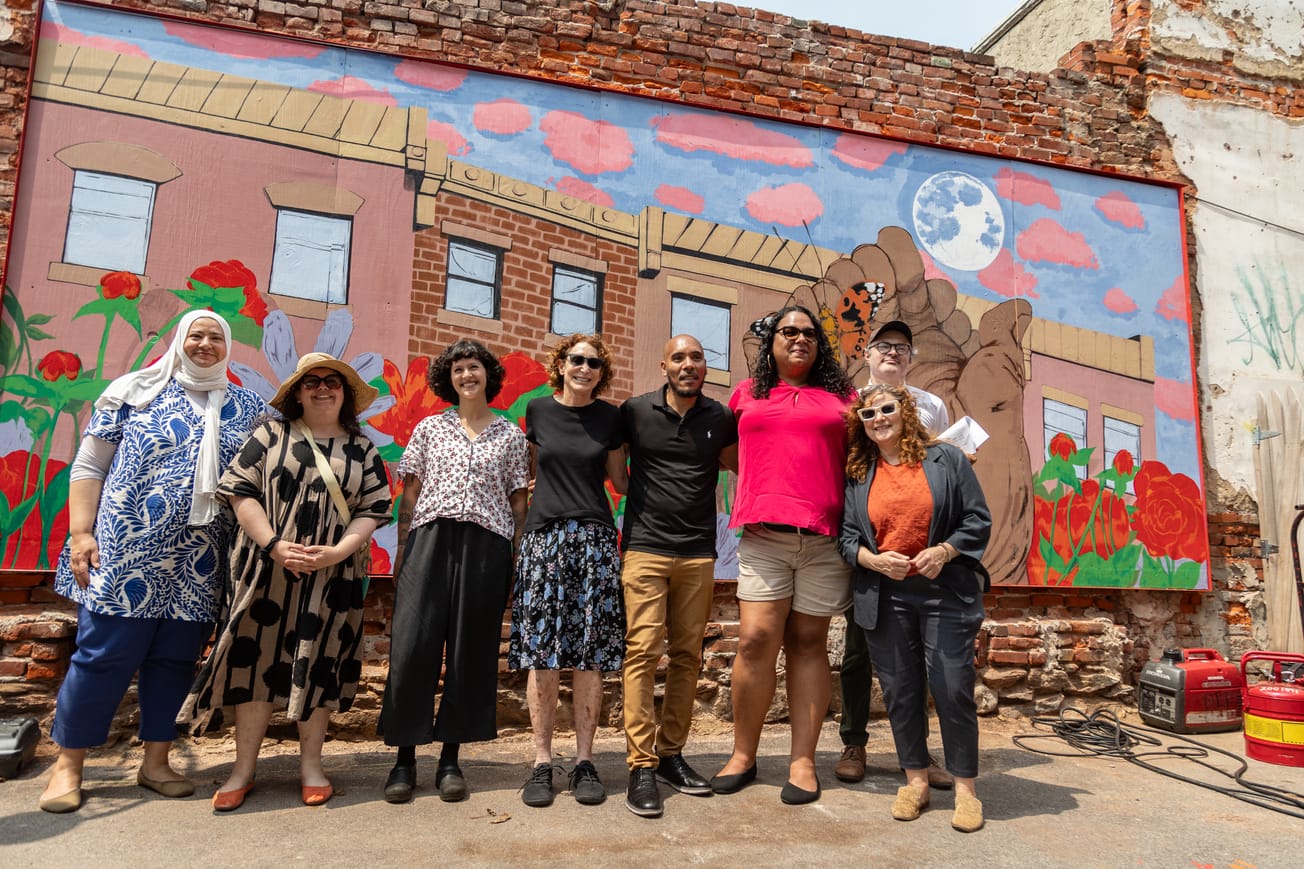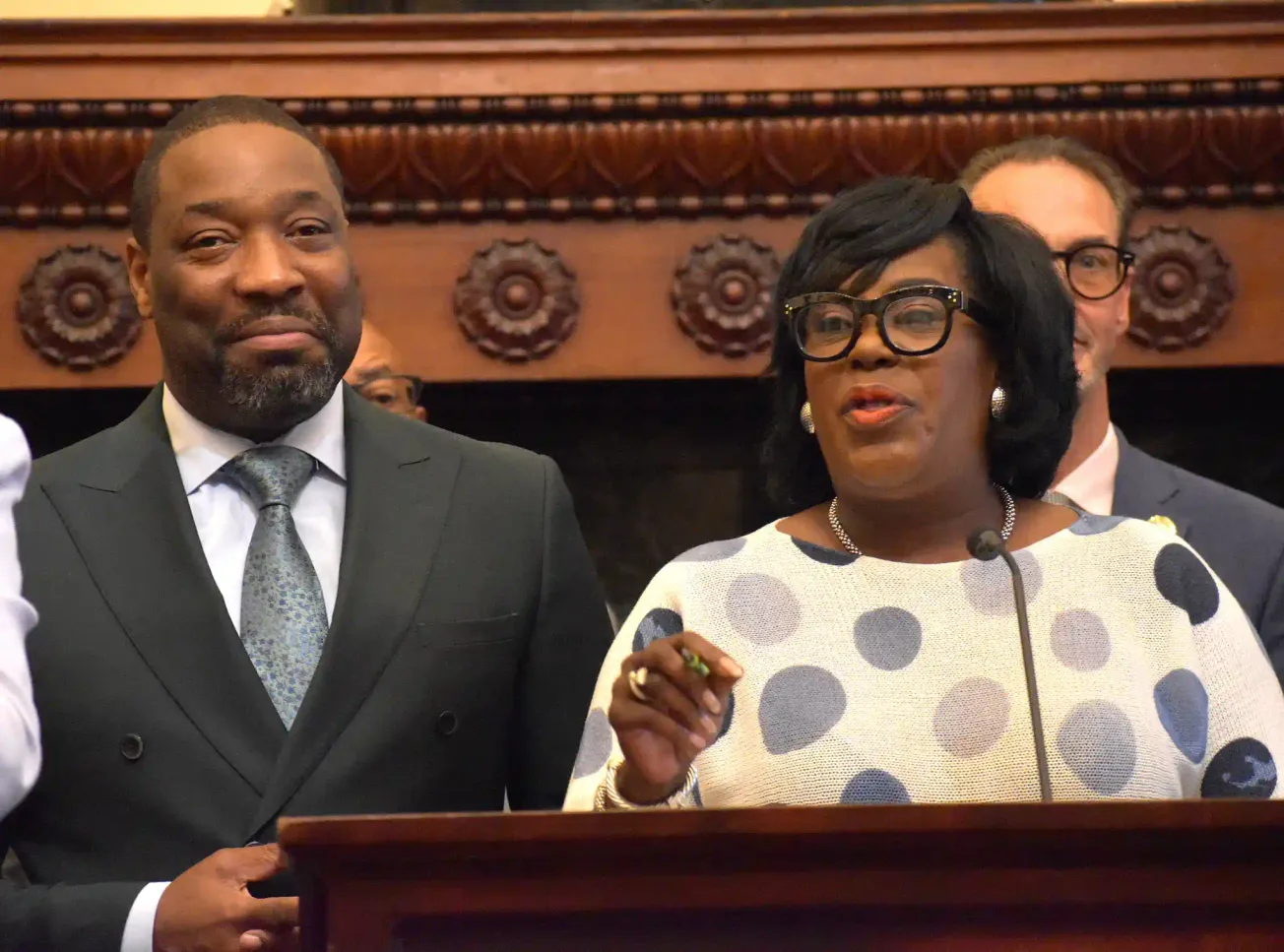Less than 12 hours after Councilmember Quetcy Lozada announced the Kensington caucus and its “triage system” concept to direct the unhoused and those living with addiction toward treatment or jail, the Harrowgate Civic Association welcomed the neighborhood’s newly appointed Deputy Police Commissioner Pedro Rosario with a surprise.
“I told you not to make it a big deal,” Rosario said, prompting laughter from a packed audience. “There’s like pizza and cake.”
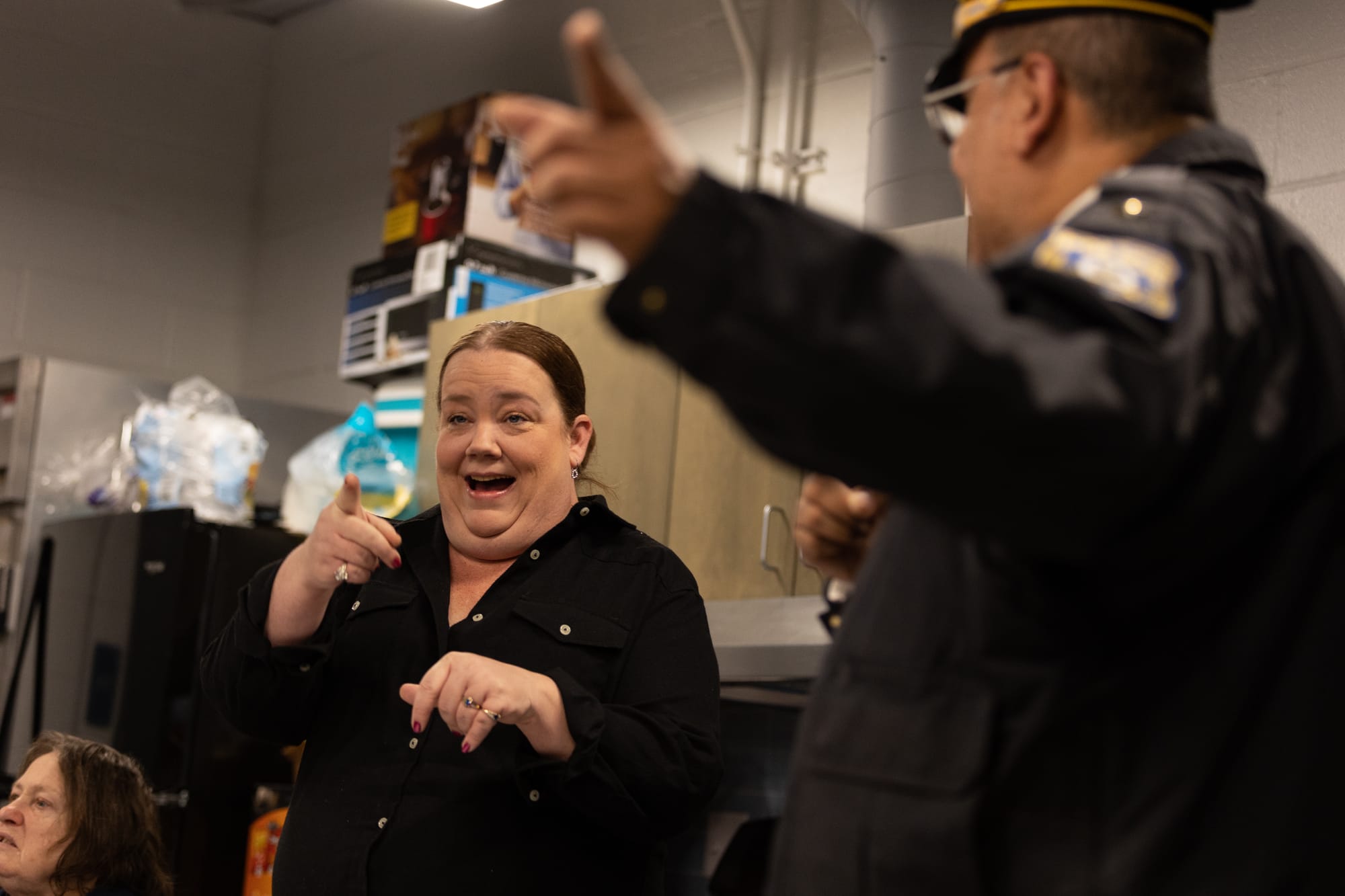
The Feb. 1 civic meeting followed an earlier morning announcement of the Kensington caucus, a group of four City Council members that includes Mike Driscoll (District 6), Lozada (District 7), Mark Squilla (District 1), and Jim Harrity, an at-large member and Kensington resident.
The caucus was made possible in part by the new City Council district boundaries, which took effect Jan. 2. Previously, the area around the intersection of Kensington and Allegheny avenues was represented by two districts — Lozada’s and Squilla’s — but is now represented by three, bringing Driscoll into the fold.
“In order for us to pass legislation that will bring about change in the community, we need nine votes,” Lozada said. “So we have created a bloc of four.”
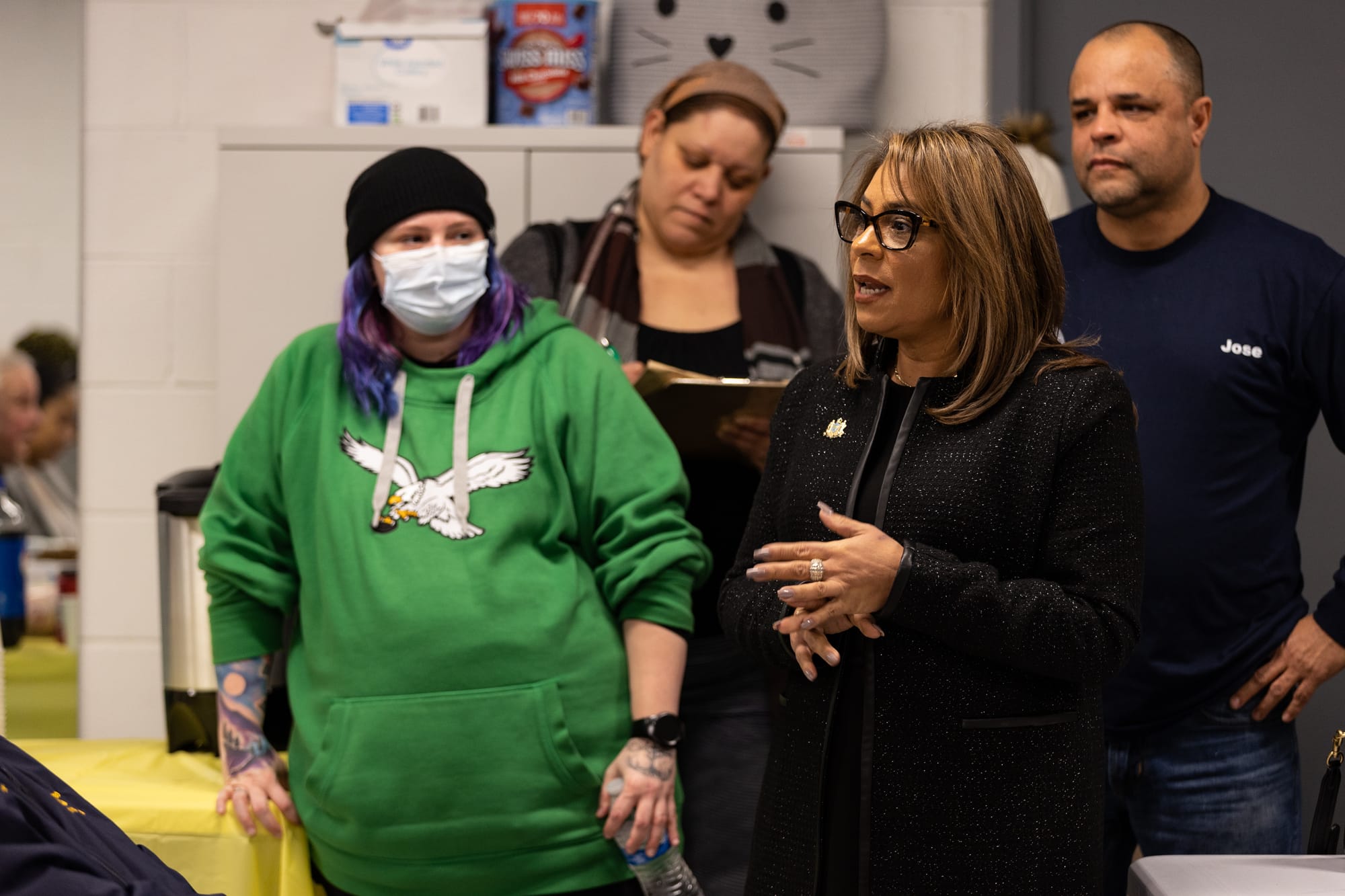
At the meeting, Harrowgate resident Sonja Bingham, who previously testified about the quality of life conditions in the neighborhood at a summer hearing, thanked Lozada and the other city leaders for their efforts.
“It’s been a long time since we’ve had people in positions of power to echo our voice, and you see the difference,” said Bingham, president of the Harrowgate Park Friends group. “So thank you for what is an acceptable quality of life that every other part of the city gets to benefit from except for our community.”
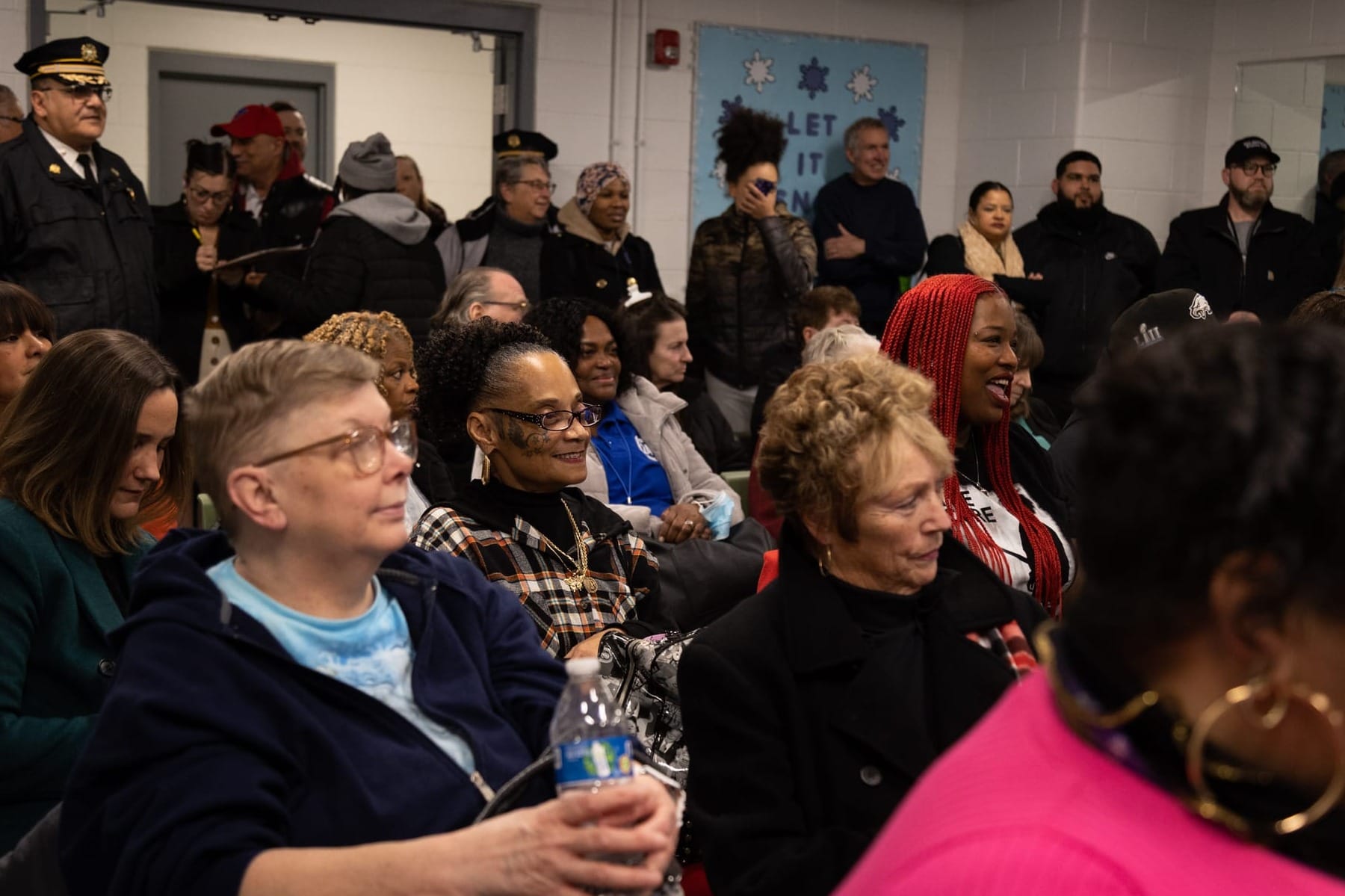
Lozada, who joined City Council in November 2022 after working as the vice president of community engagement and organizing at Esperanza, emphasized the importance of residents providing public testimony.
“It’s different when we talk about what your needs are and what we hear from you on the ground [than] when you show up in Council, and you tell the legislators what it’s like to work and stay here,” she said.
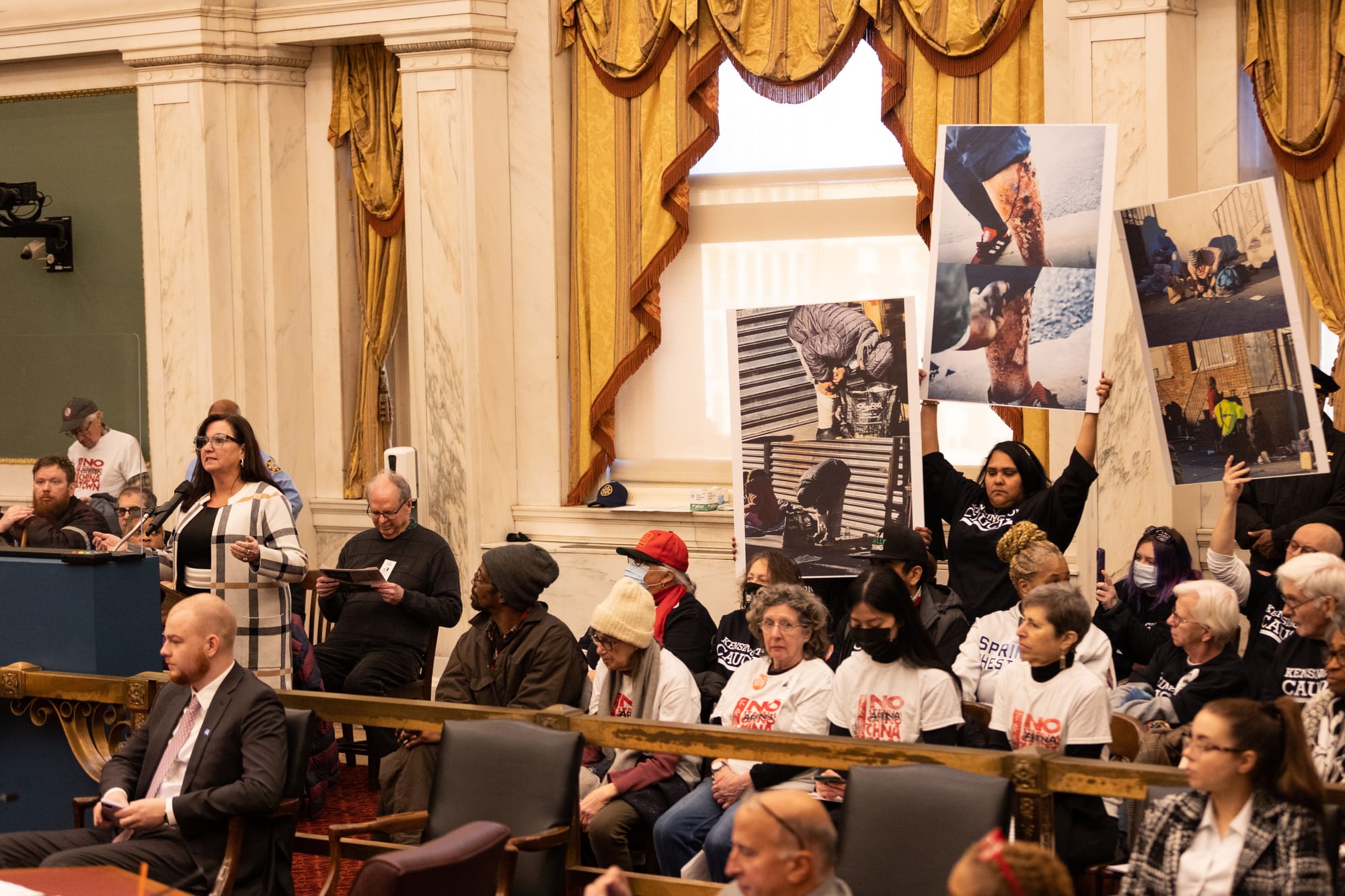
“Where’s the tough love?”
At an emotional City Council meeting on Thursday, over a dozen residents wearing Kensington caucus t-shirts held large photographs of skin ulcers, public defecation, and people injecting drugs. Some people, there to testify on other matters, turned their faces in disgust.
The group was there in support of a symbolic resolution establishing the Kensington caucus “to represent a united legislative front in addressing the crisis in the Kensington area.” When Council voted unanimously to adopt the resolution, the group erupted into cheers and applause.
“As somebody in recovery, I just want people to know that some of us don’t go willingly,” said Councilmember Harrity. “Some of us get recovery because we get sent to jail or we get mandatory into a rehab.”
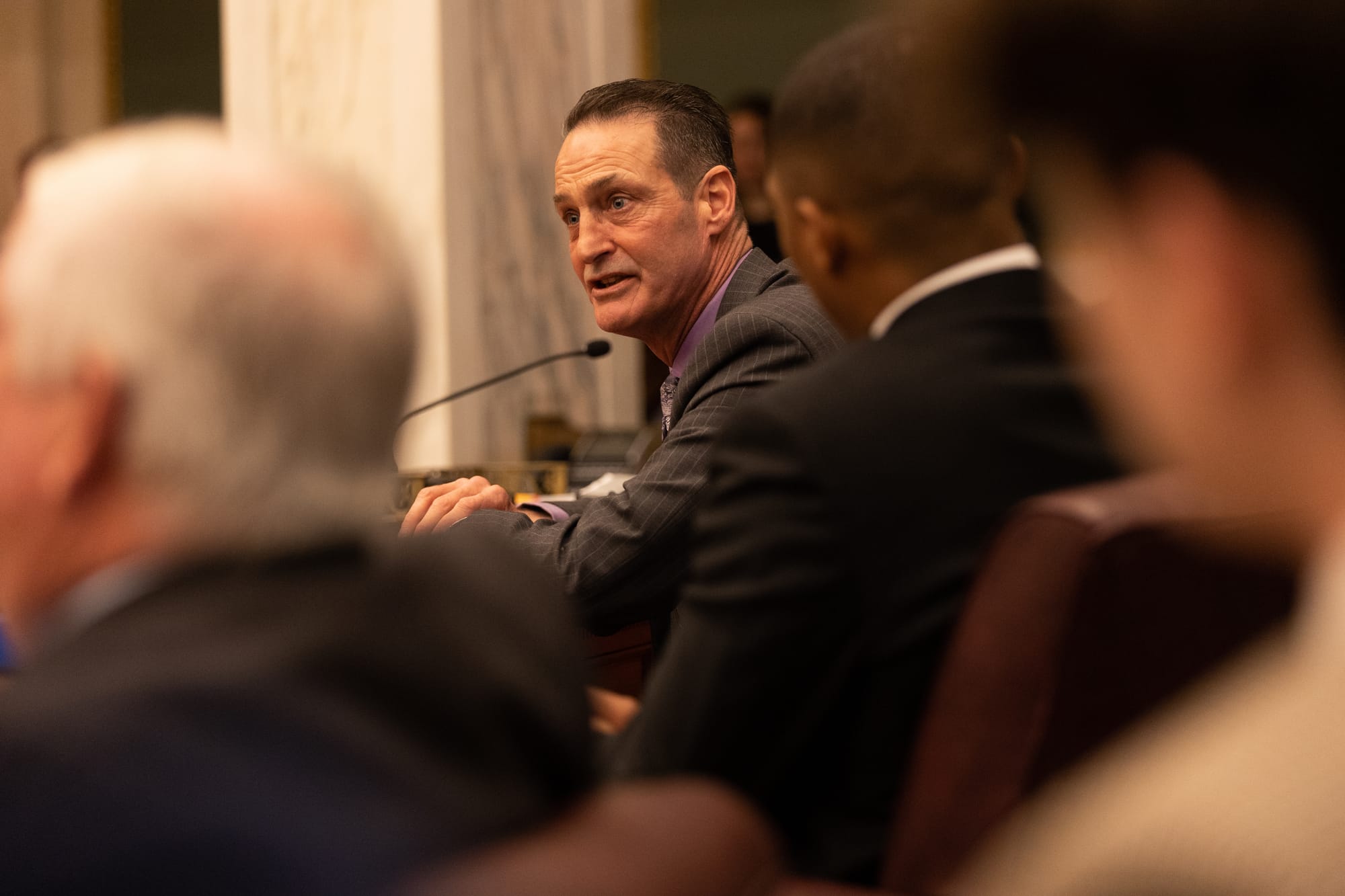
Throughout the morning, community members held signs with phrases like “Give us back our community” and “Kensington caucus: the dream team” as they listened to a slew of public testimonies.
Harrowgate Civic Association President Shannon Farrell shared a story from a neighborhood quality of life hearing about a 10-year-old who lost sleep at night worrying about his little sister’s safety.
Steven Bilski, the principal at Memphis Street Academy, said the caucus’s “triage” idea demonstrates “actions that match the gravity of our situation.”
“Every day, the students are forced to start their days making their best attempt at blocking out these images and experiences to do their best at concentrating on academics,” Bilski said. “Far too many suffer in silence as we attempt to meet their holistic and academic needs.”
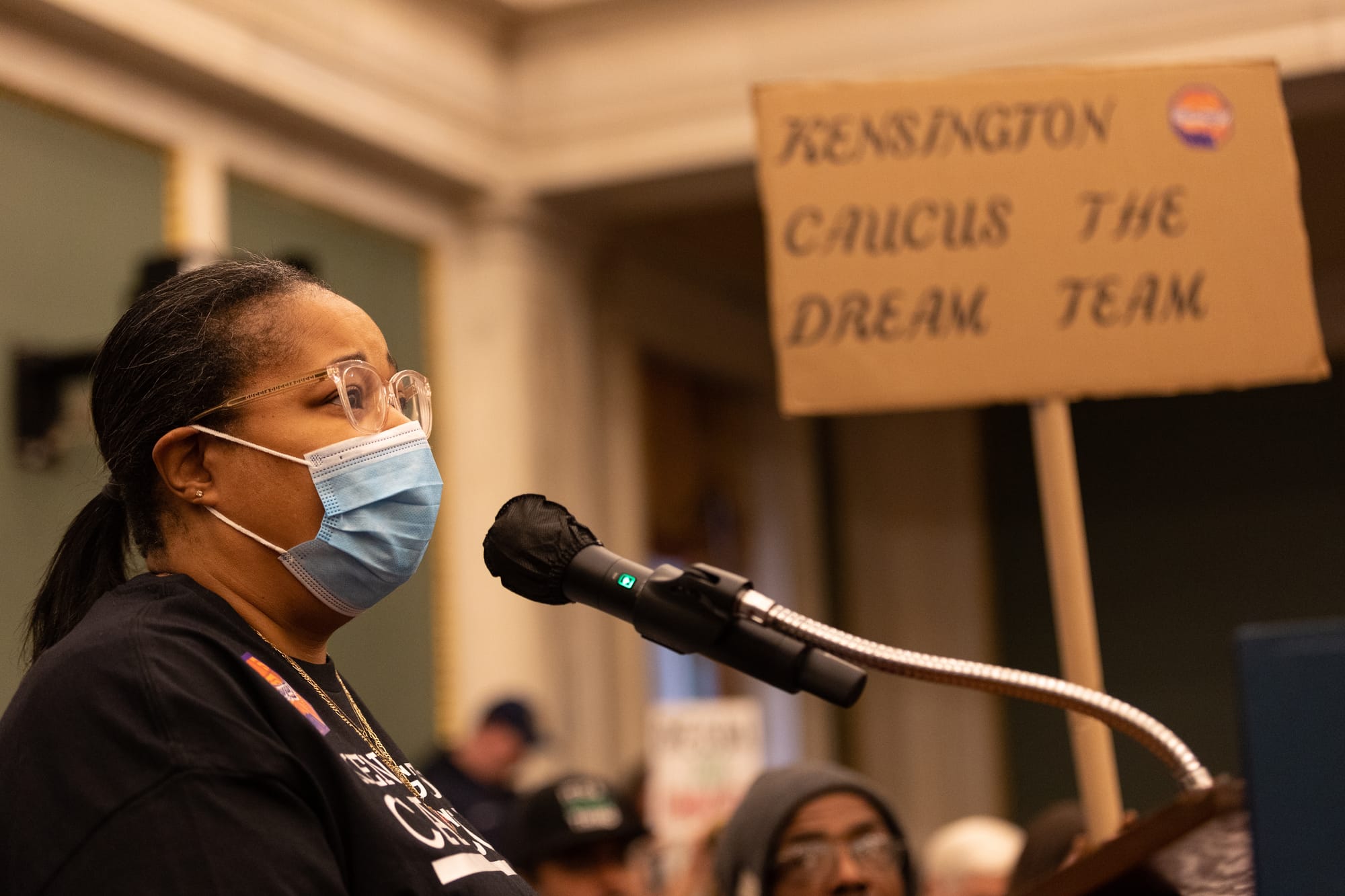
Darlene Burton, who has lived in Harrowgate for 28 years, said she was sweeping in front of her house when she experienced a needle stick injury. She said her children are afraid to let her grandchildren visit because of where she lives – “in the same neighborhood I raised them.”
“We’re tired of being a containment facility,” Burton said.
Lifelong resident Daisie Cardona, who teaches at Rebel Arts Movement, talked about the negative impact the neighborhood’s conditions have on elders and children.
“This is not fair,” Cardona said.
Marnie Aument-Loughrey, president of the Kensington Independent Civic Association and Harrity's longtime partner, credited the Kensington caucus with “giving hope back to our children and our community.”
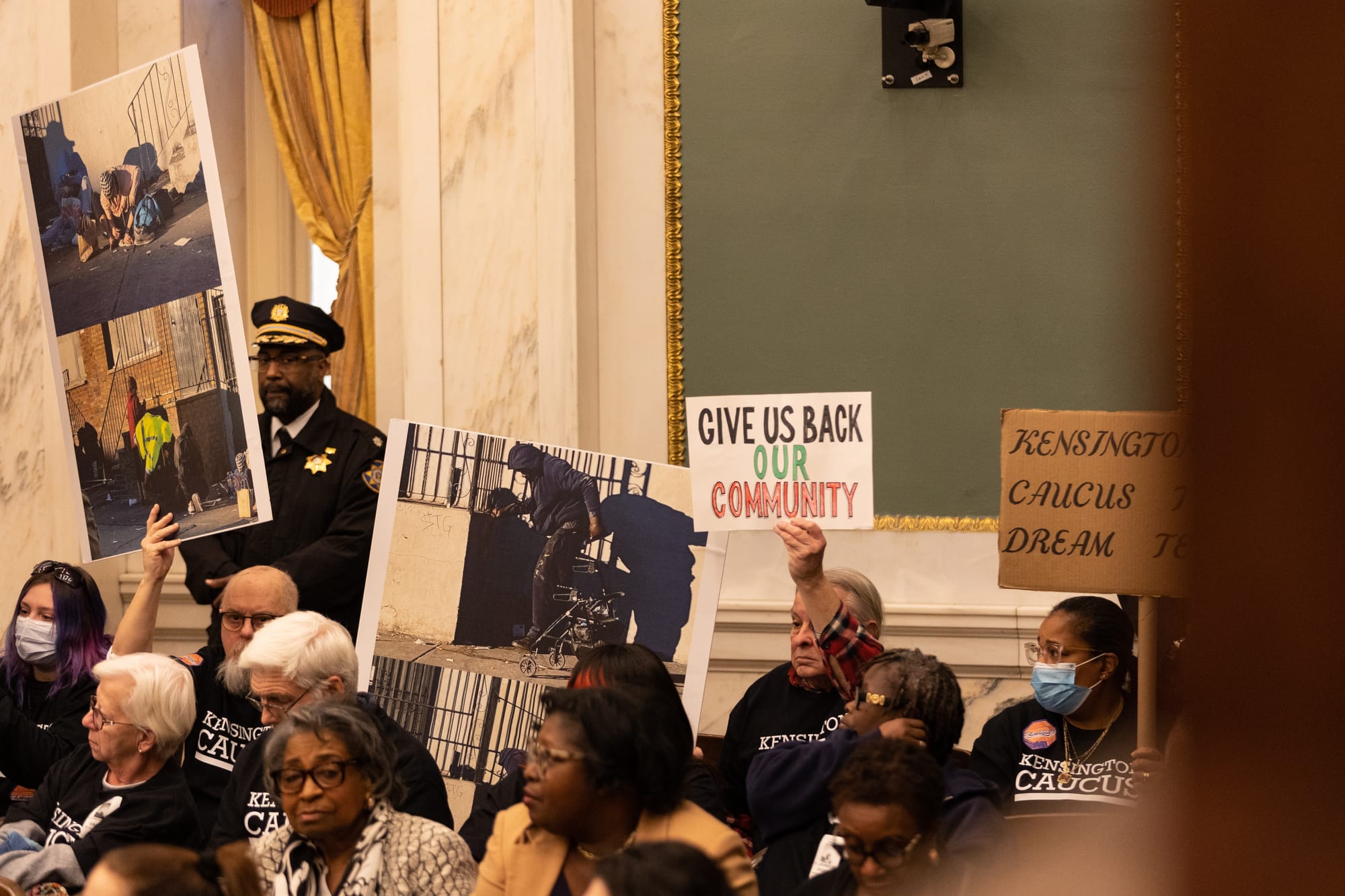
During his testimony, Harrowgate resident Alfred Klosterman said the triage concept is “the best idea we can get to fix so many wrongs in a compassionate and positive way.”
“The drug users would be directed to treatment and medical care and housing afterward,” he said. “The residents would start seeing a neighborhood become clean and safe again, with stores, eateries, and other amenities returning.”
He said the recent civic meeting was “one of our largest and most enthusiastic,” and that “people have a real feeling of hope.”
While resident Crystal Anderson said she is not opposed to addiction treatment, she said she believes providing people who use drugs with things like crack pipes, condoms, sterile needles, and wound care “keeps them sick,” and wants to know, “Where’s the tough love?”
“In the 80s and 90s, Black people were given a substantial amount of prison time, families were broken up, and kids were thrown into foster care,” Anderson said. “Now that the drugs have hit a different demographic, it’s an epidemic, and now I see a lot of coddling.”
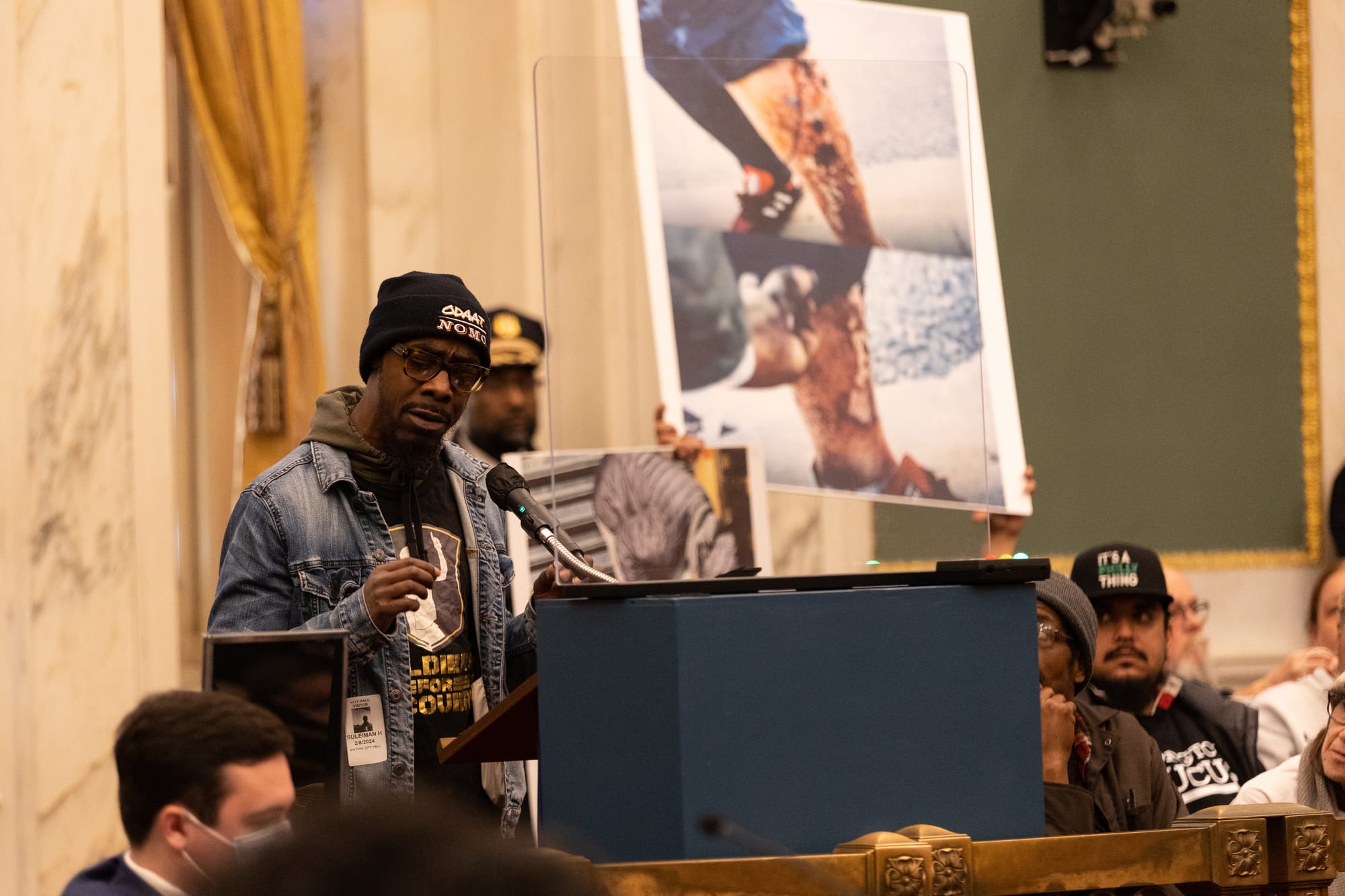
But Suleiman Hassan, who is 10 years in recovery from addiction and did not attend the City Council meeting with the group, encouraged the caucus to consider everyone in the community – including the unhoused.
“I found myself up in Kensington living on the streets, sleeping on the streets, going to the bathroom on the streets – everything that you see, that’s what I was a part of,” he said. “We need to understand that people that are up there, they’re sick, they’re family – and that’s a small community that needs our assistance.”
Hassan, who said he lived through the childhood trauma of his mother’s addiction before experiencing his own, said that “it’s kids out there that have to walk through glass and feces, and it’s terrible.”
Now, he works with the One Day At A Time recovery center on Broad Street near Lehigh Avenue – of which Harrity sits on the board.
“I’m out there every day, pulling people out from the disease of addiction to give them hope,” Hassan said. “And it’s going to take love.”
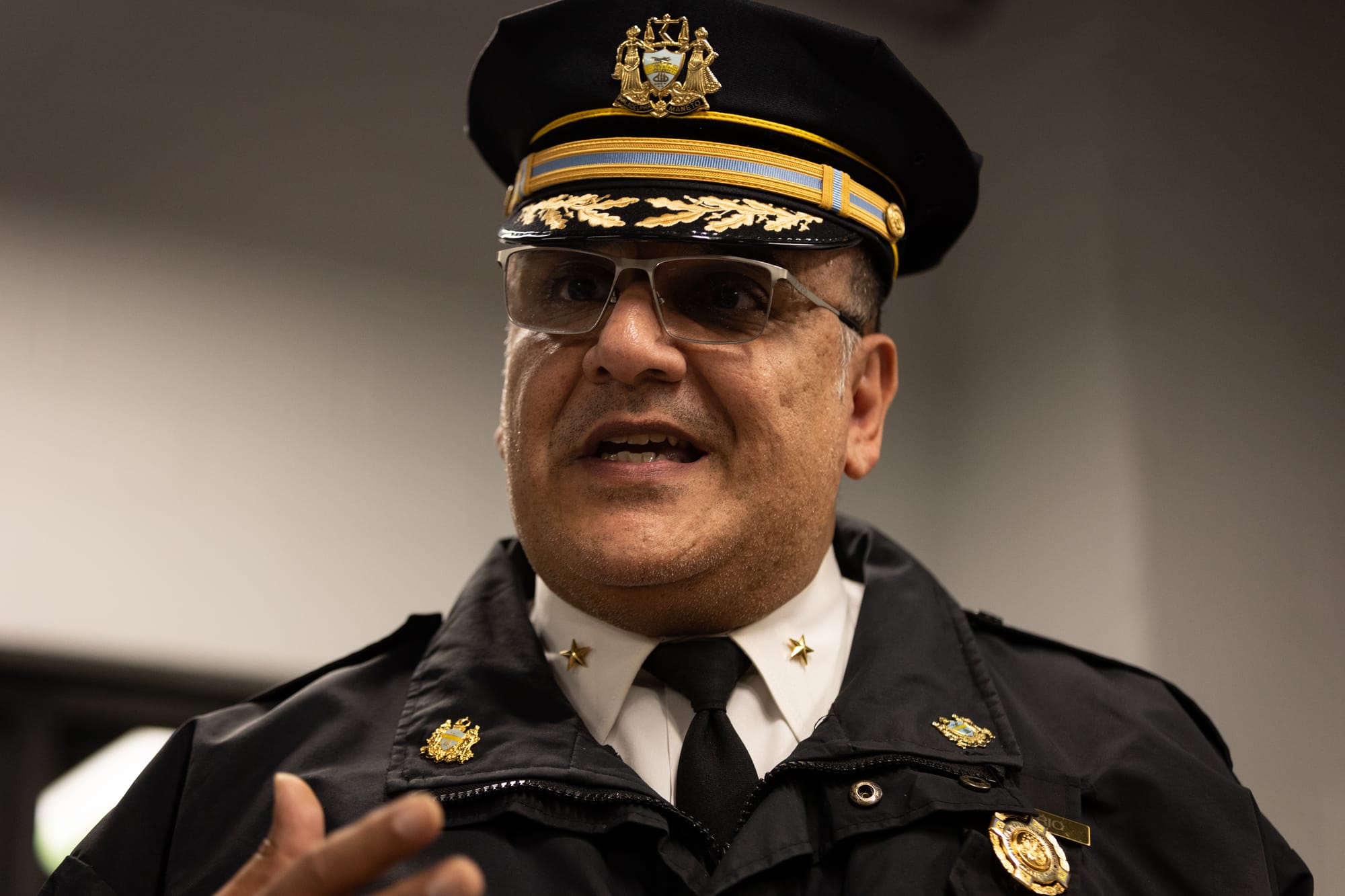
“It has to be a multi-pronged response”
After City Council’s unanimous vote to adopt the Kensington caucus resolution on Thursday, Lozada said that the caucus is committed to “not just to move what is happening in the Kensington community away from that community, but to address the actual problem.”
However, Lozada and other city leaders including Mayor Cherelle Parker – about whom many in the community are hopeful – have yet to release a comprehensive plan explaining how the triage system will work.
During the Harrowgate civic meeting, Lozada said the triage centers would provide “very specific, individual attention” to connect them with resources before facing punitive action.
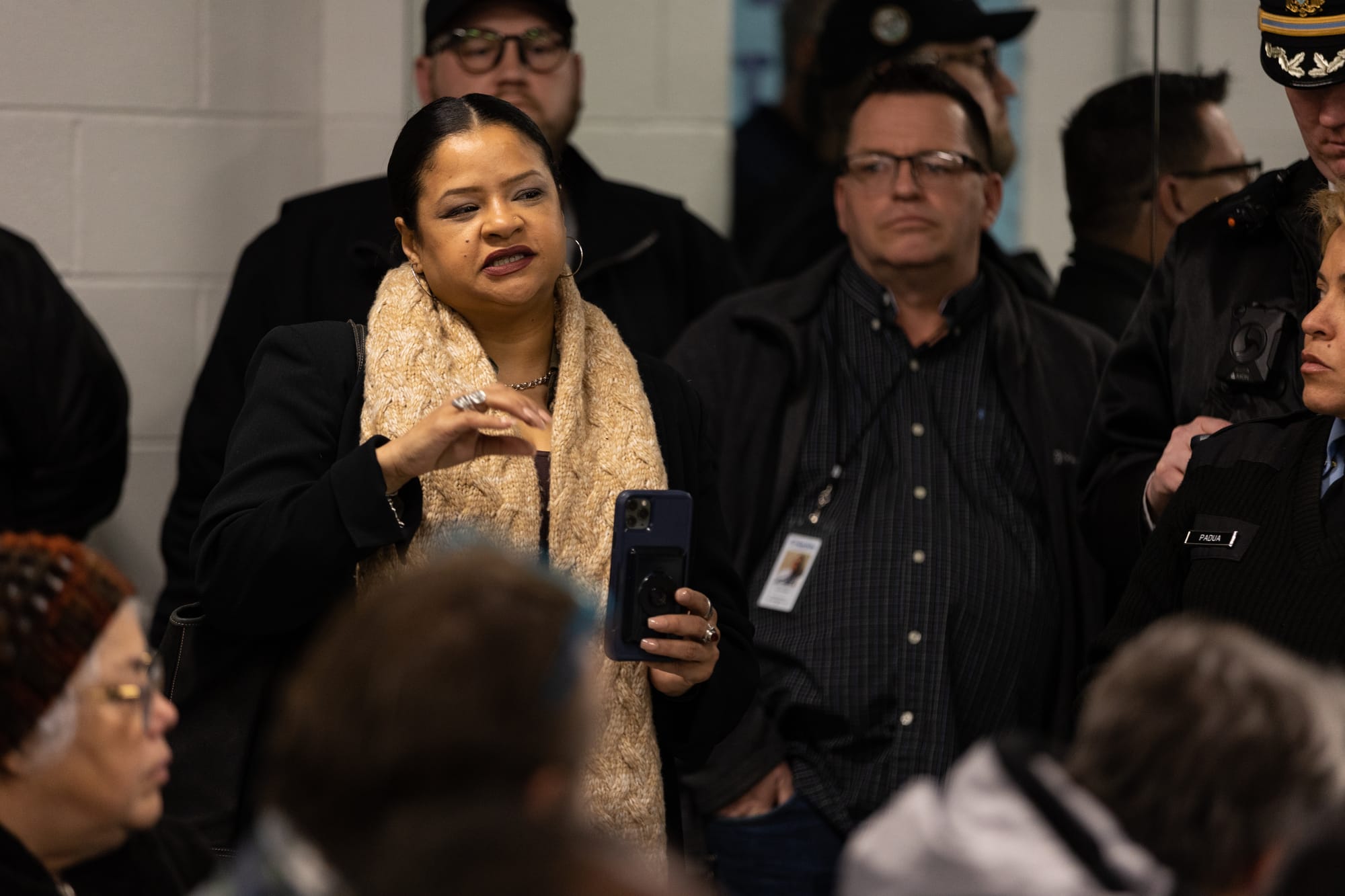
But when Kensington resident and outreach worker Roz Pichardo asked how many triage centers they are considering and how they will handle treatment barriers like wounds requiring medical attention, Lozada did not provide specifics or answer all of Pichardo’s questions.
“I want to be very clear: that’s not my specialty,” Lozada said. “I don’t specialize in mental health, I don’t specialize in addiction, that’s not my realm of work, and I’ve never acted like it is.”
Lozada said the location the Kensington caucus has identified will provide similar wraparound services to those that people receive “on the street” and will address individual needs, including “wound care, extended medical care, prevention care – whatever it is.” She also said that if people do not accept the options offered to them, “there will be consequences.”
“Ultimately, if enforcing and holding people accountable is what will be necessary to restore quality of life for the children and families in the community, that is what will happen,” she said.
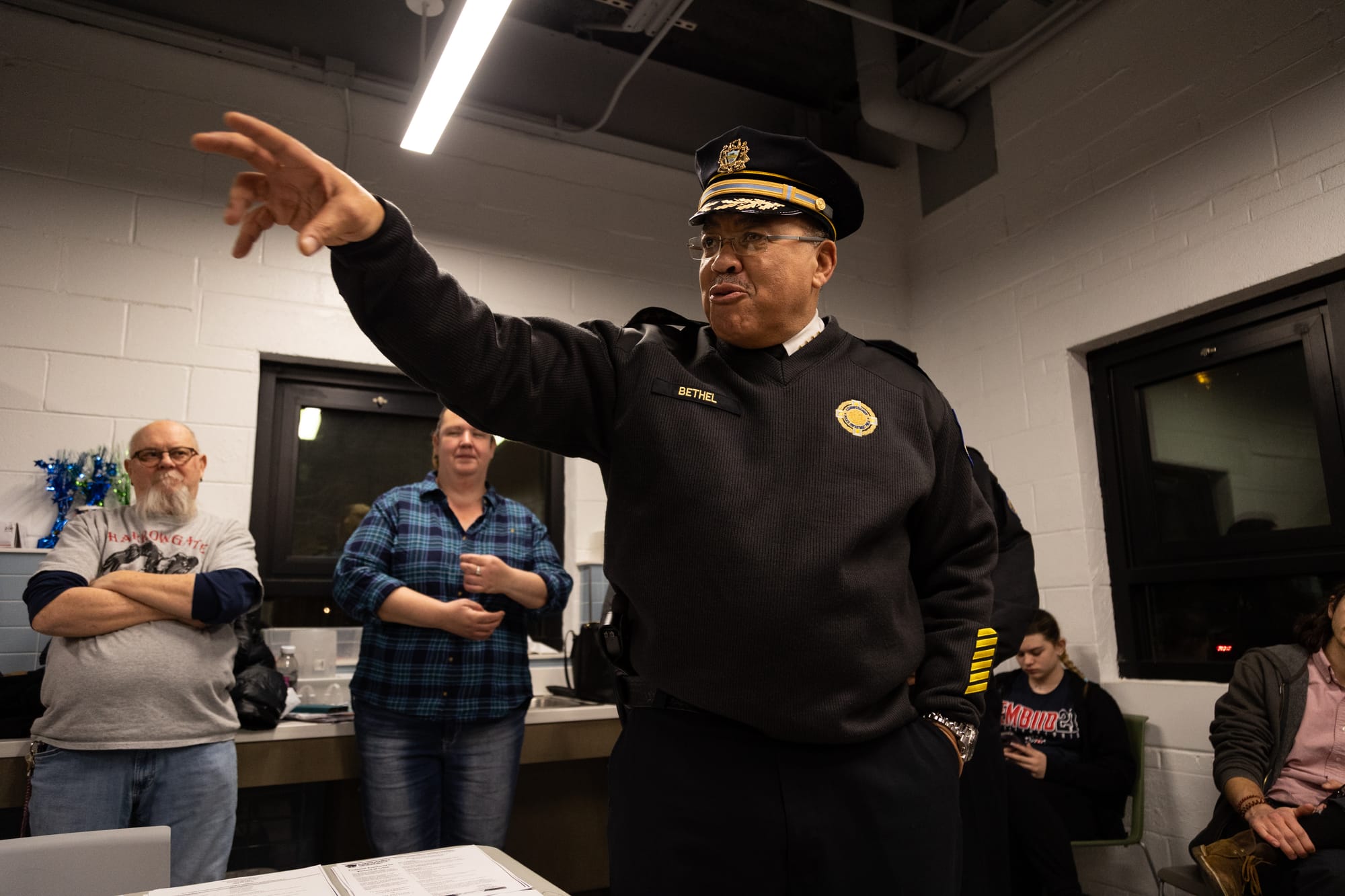
The enforcement strategy will include arresting people selling drugs, according to Philadelphia Police Commissioner Kevin Bethel, who was appointed by Parker after serving as the chief of school safety for the school district. He also said the police department plans to use a “multi-pronged approach” that “will meet the needs of everyone.”
“Having a facility where we can take folks to be able to get the treatment and the supports that they need – all of that is going to be wrapped into our model,” he said.
While Bethel warned residents that the changes might be “choppy,” he did provide some sense of timeline: between late summer and early fall.
“I made my commitment to my principals: Things will look different when our kids come back in September,” he said, followed by a burst of applause.
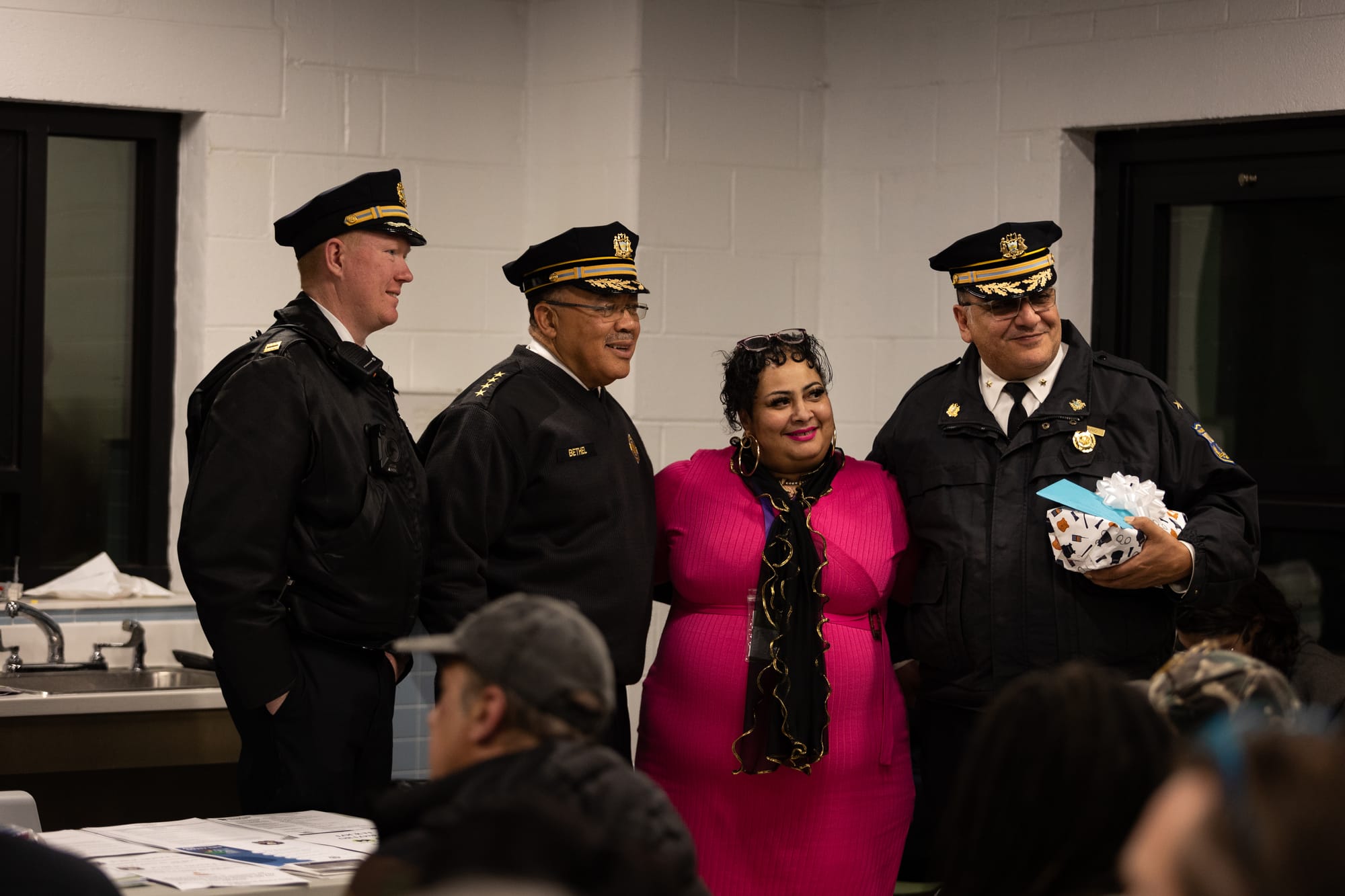
But for now, Rosario – who served for 29 years before his appointment, most recently as a captain in the city’s East Division – asked the community for some patience, “understanding that there might be some missteps.” He also echoed Bethel, emphasizing to residents that “it has to be a multi-pronged response.”
“There’s a lot of facets of outreach and social services that have to come into play on that side,” Rosario said. “On this side, there has to be a lot of enforcement and accountability.”
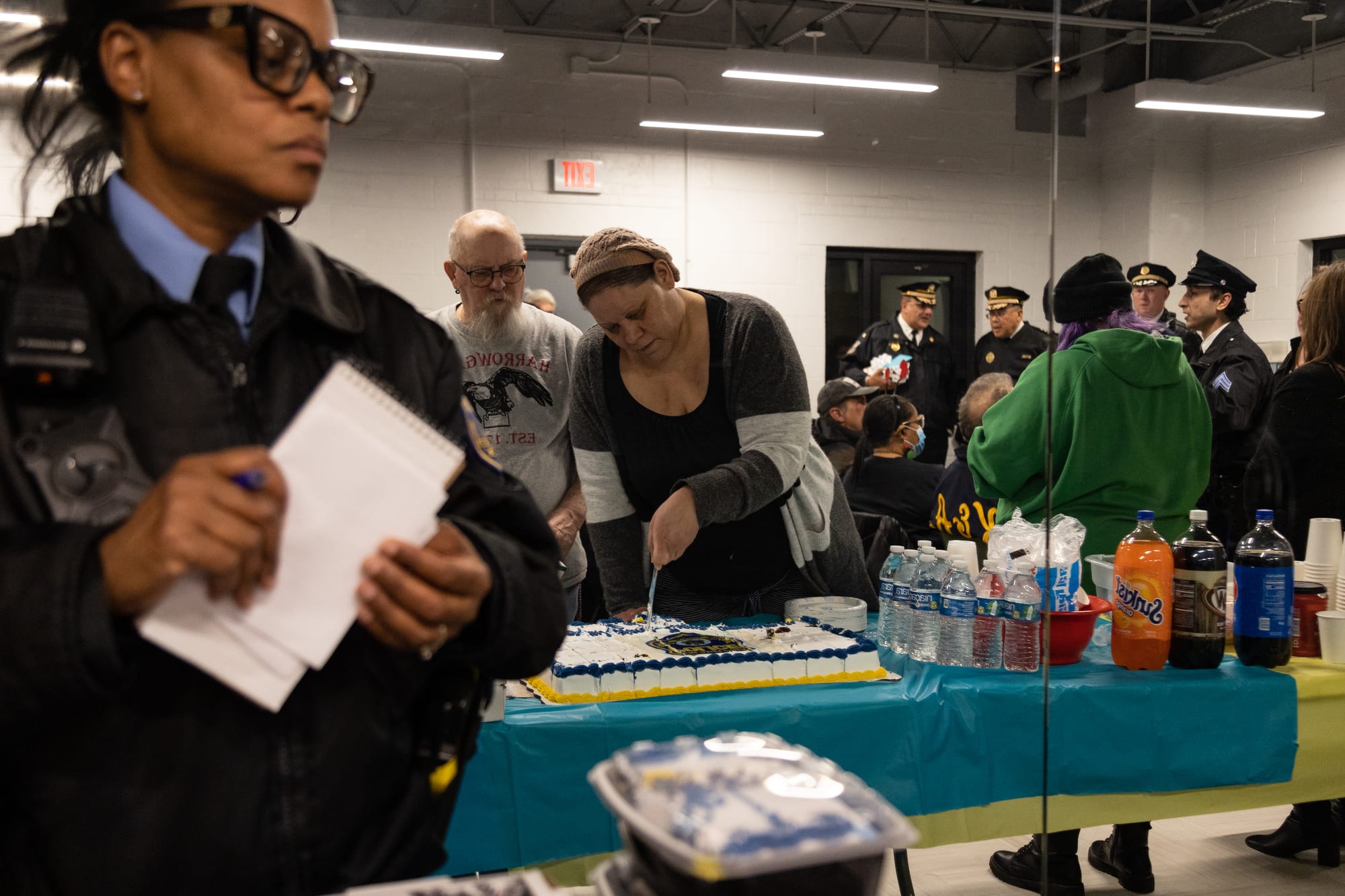
Nobody from the city’s behavioral health, health, homeless services, or opioid response teams addressed the audience at the civic meeting.
Have any questions, comments, or concerns about this story? Send an email to editors@kensingtonvoice.com.


